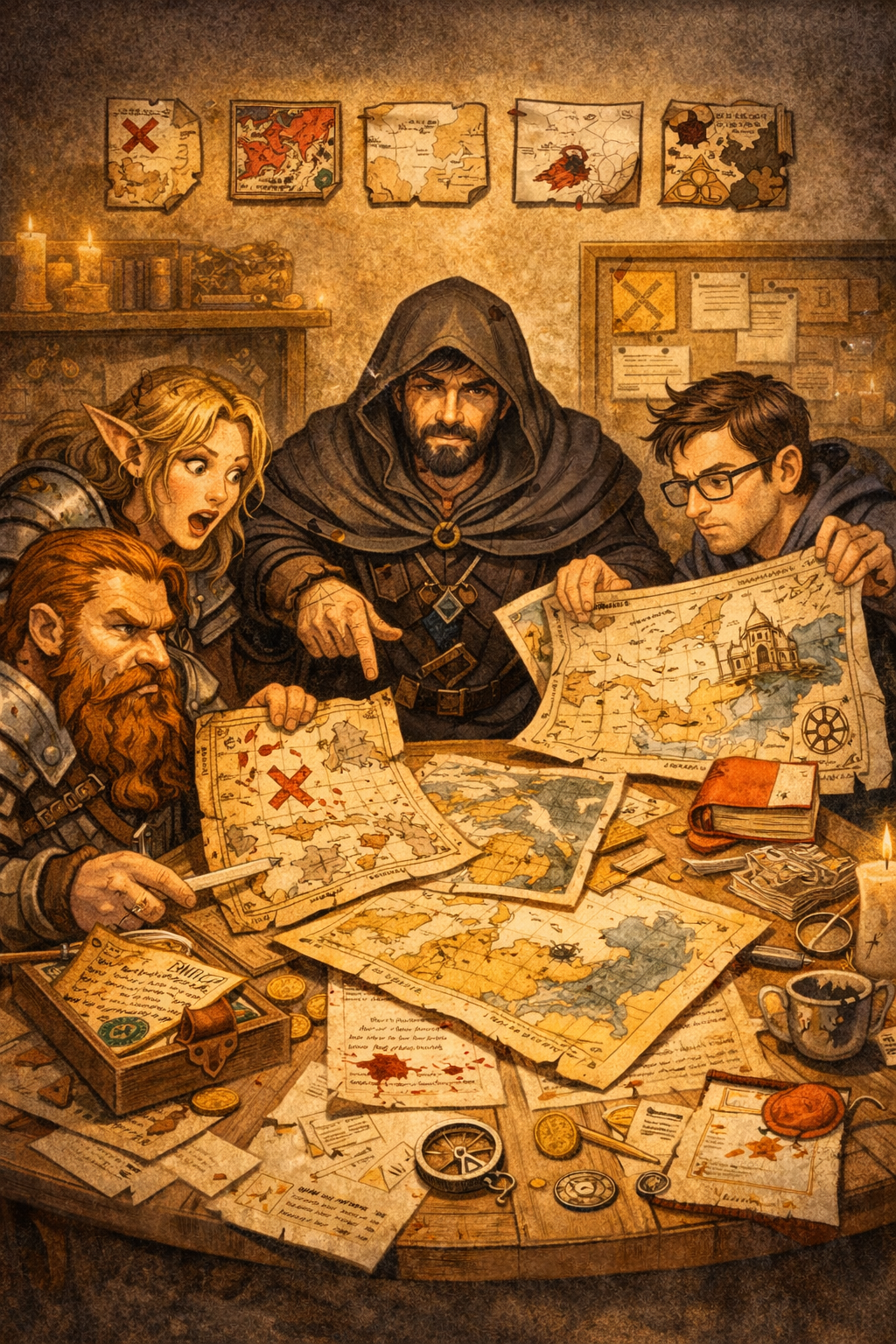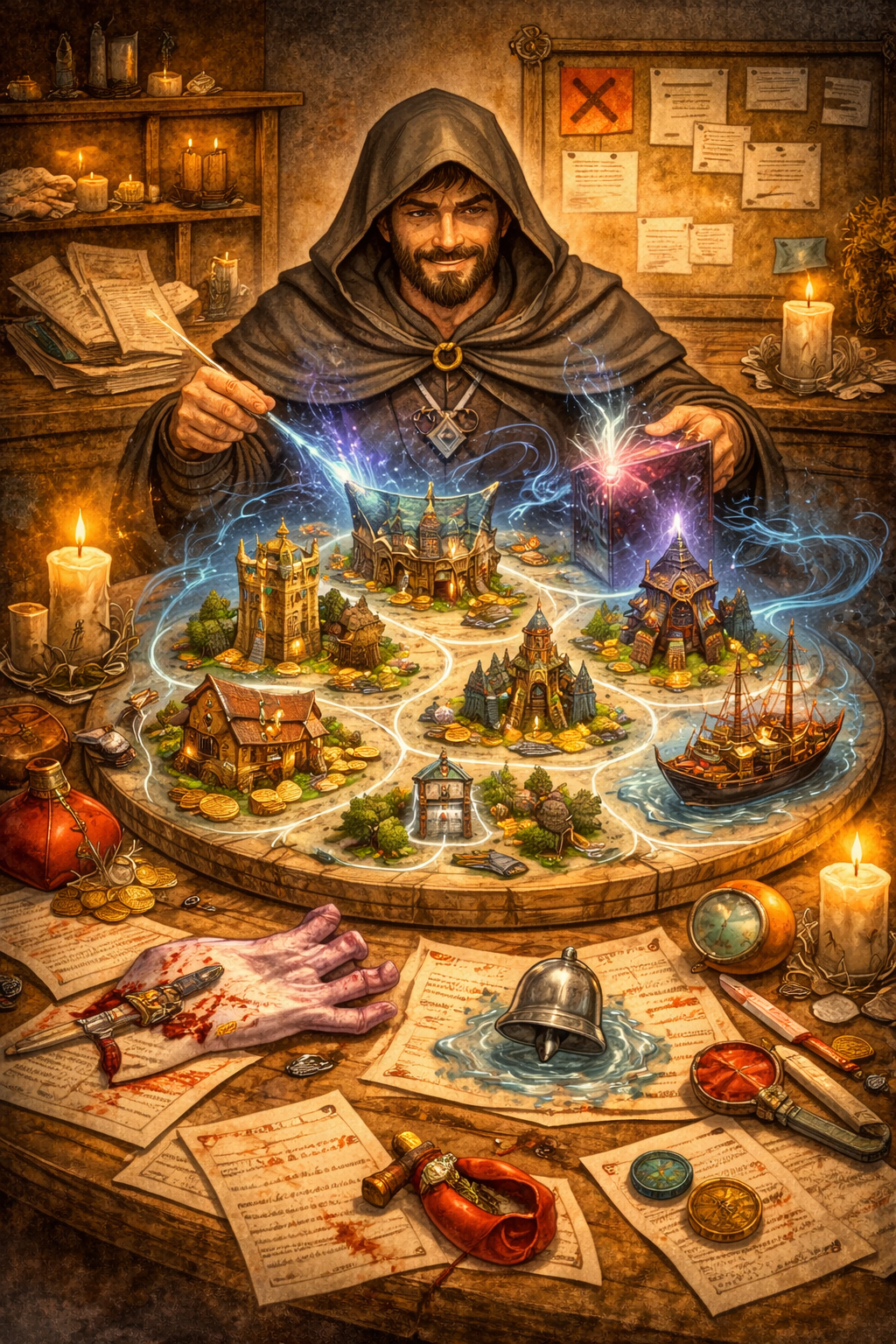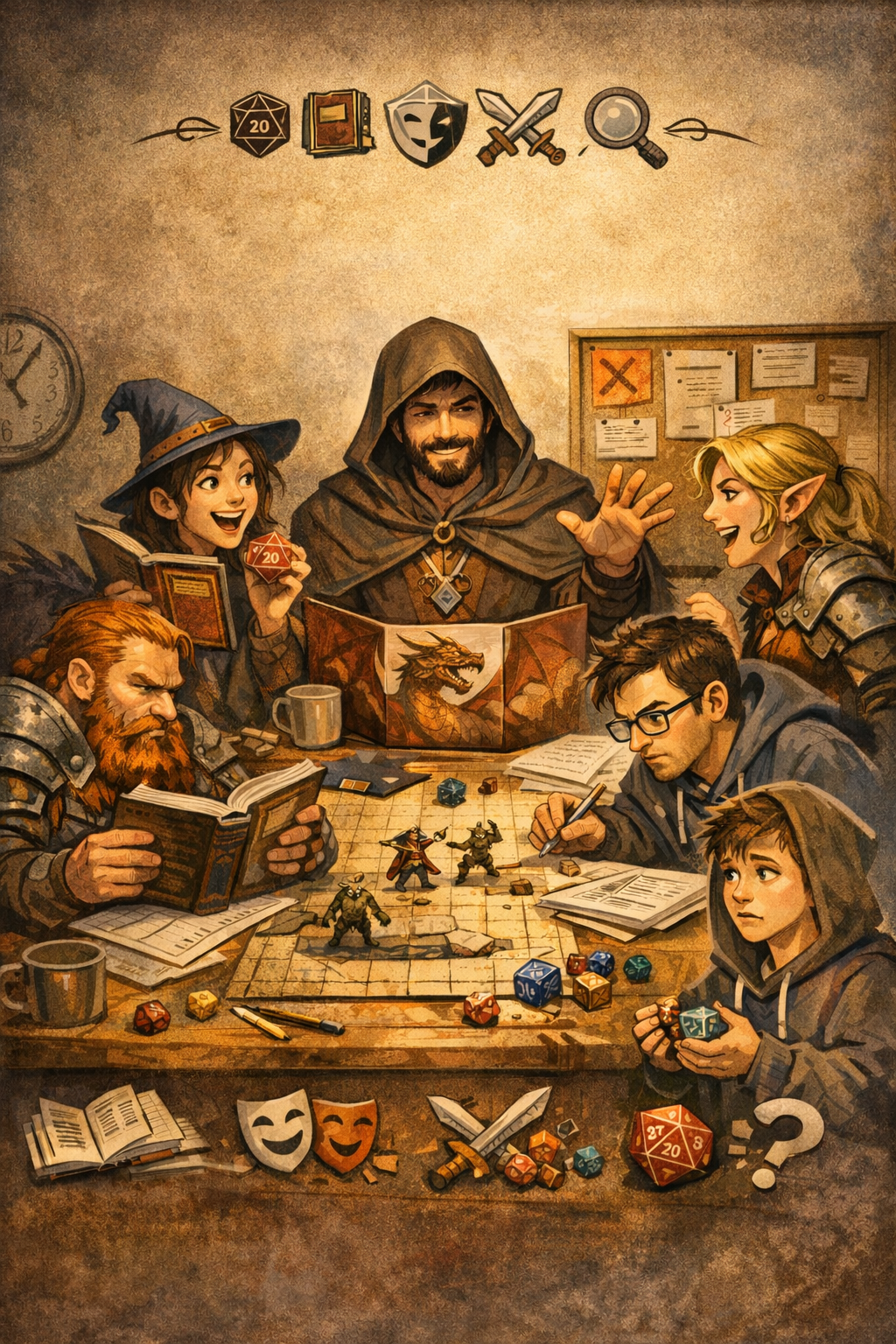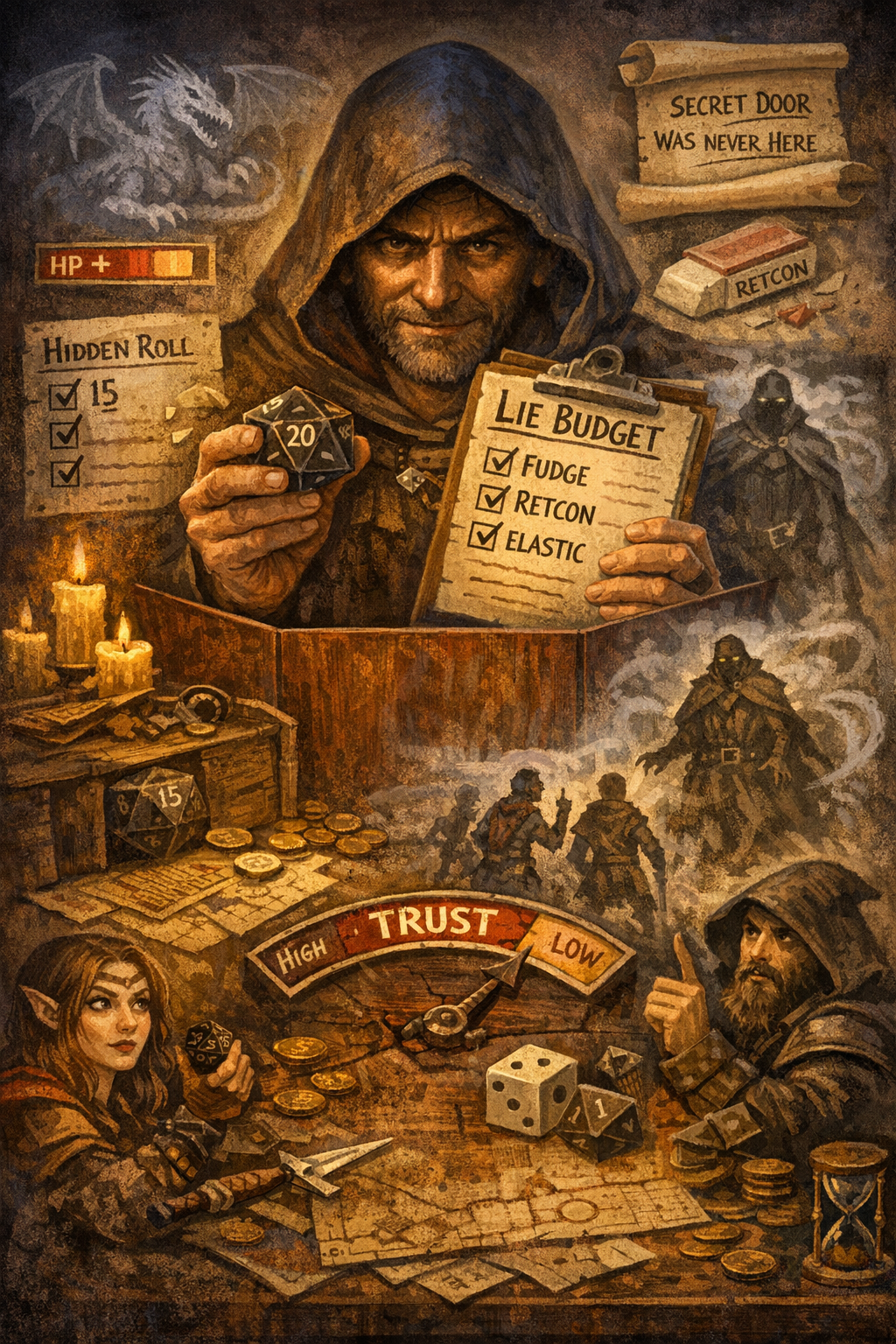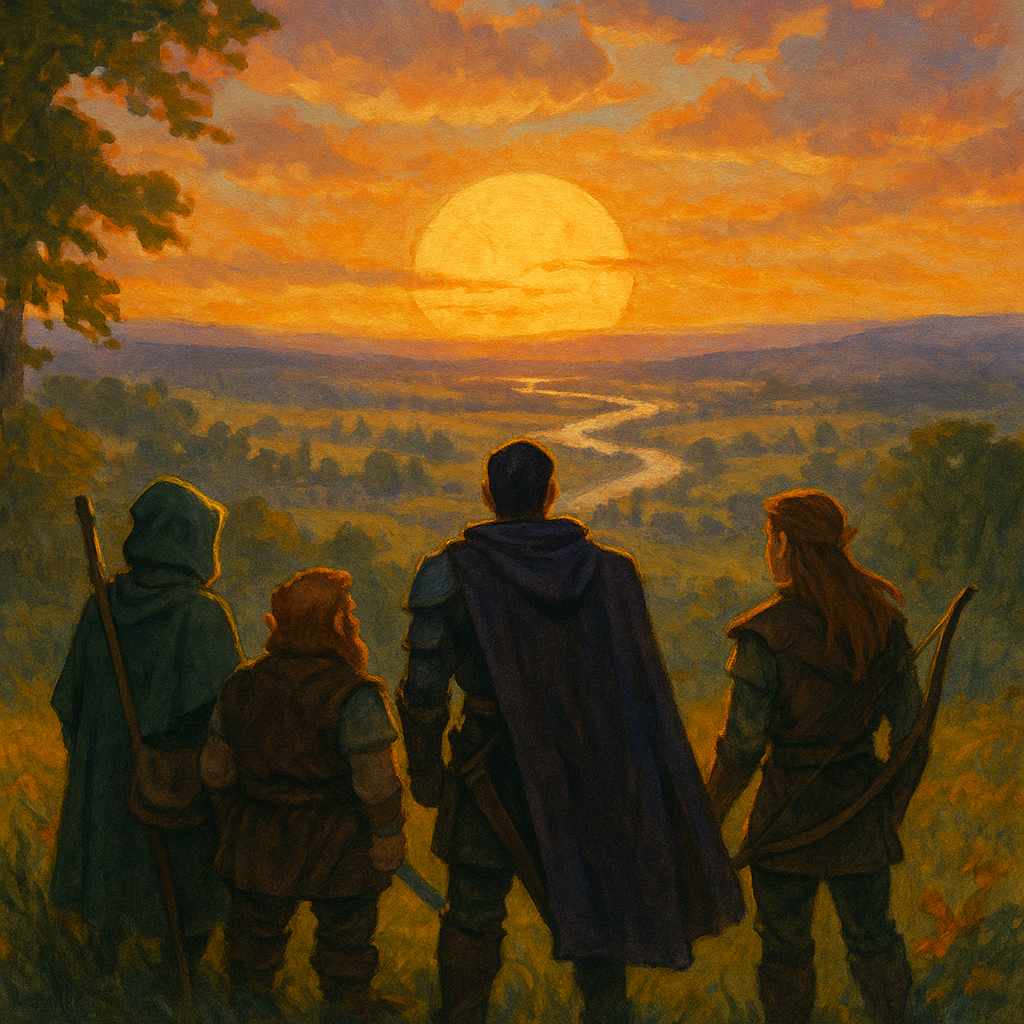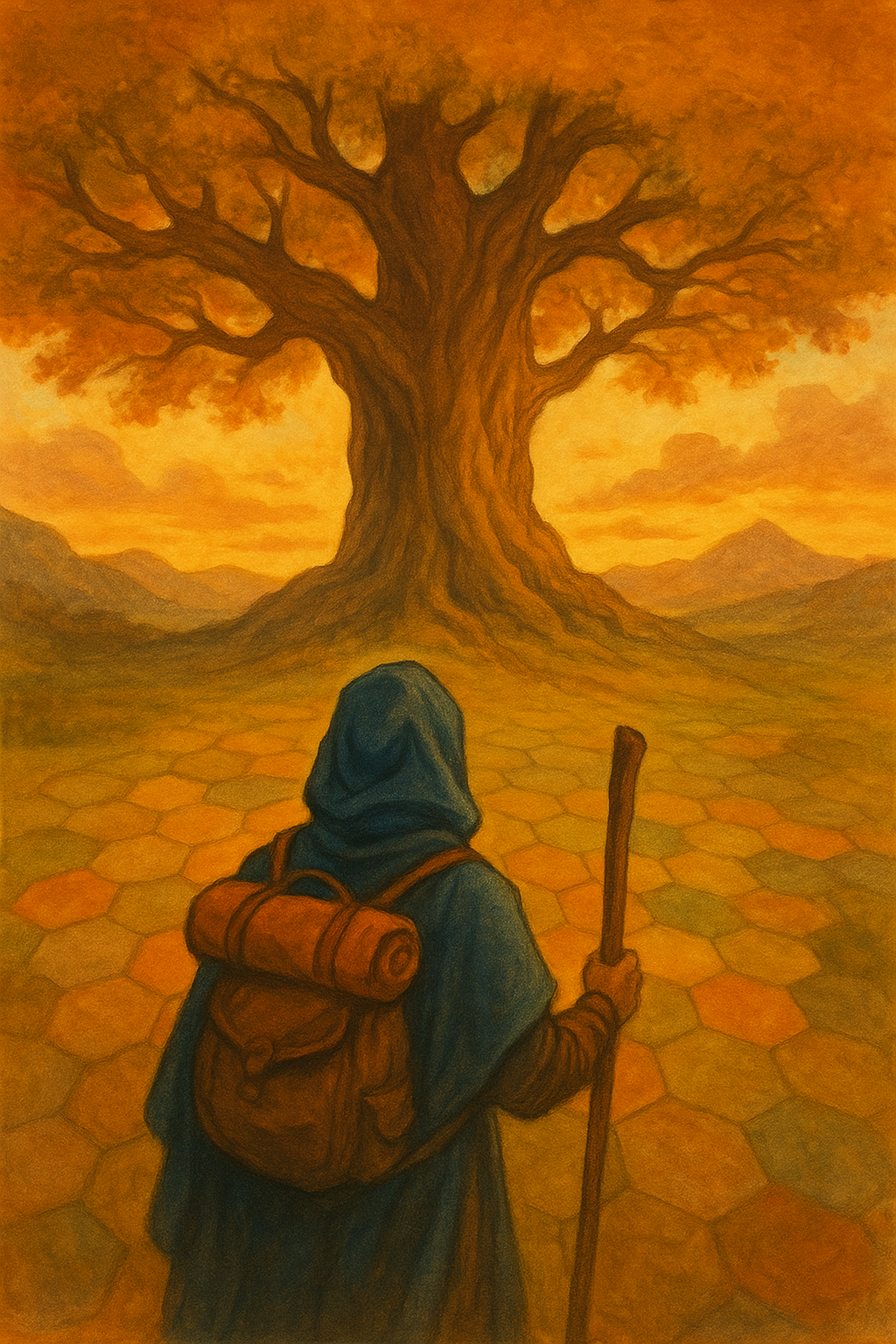Incorporating Technology: Using Digital Tools to Enhance Your Game
Dear Readers, welcome back to our Dungeons & Dragons (D&D) blog! Today, we’re diving into the exciting world of technology and exploring how digital tools can enhance your D&D experience. While the heart of D&D lies in storytelling, imagination, and the camaraderie around the table, technology offers a plethora of resources to streamline gameplay, enrich narratives, and connect players in new ways. Whether you’re a Dungeon Master (DM) or a player, incorporating digital tools can elevate your game to new heights. So, let’s embark on this journey to discover how technology can transform your D&D adventures.
Virtual Tabletop Platforms
Virtual Tabletop (VTT) platforms have revolutionized how we play D&D, especially in an era where physical gatherings are sometimes challenging. These platforms provide a digital space where players can interact, roll dice, and visualize the game world.
Roll20
Roll20 is one of the most popular VTT platforms, offering a comprehensive suite of tools for D&D gameplay. It includes features such as:
- Dynamic Maps: Create and share detailed maps with dynamic lighting and fog of war to enhance immersion.
- Character Sheets: Integrated character sheets that automate calculations and track character stats.
- Dice Rolling: Virtual dice rollers that support various types of rolls, including custom macros.
- Voice and Video Chat: Built-in communication tools to connect with players in real-time.
Example Use: As a DM, you can upload a custom dungeon map to Roll20, set up dynamic lighting to create a sense of mystery, and use the fog of war feature to reveal the map gradually as players explore. This adds a visual and interactive element to your game that enhances the storytelling experience.
Fantasy Grounds
Fantasy Grounds is another robust VTT platform, known for its extensive library of officially licensed D&D content. Key features include:
- Official Modules: Access to a wide range of official D&D modules and supplements.
- Automation: Automated features for combat, spellcasting, and other mechanics to streamline gameplay.
- Customizable Interface: Highly customizable interface to tailor the game environment to your preferences.
Example Use: You can run a pre-written adventure like “Curse of Strahd” using Fantasy Grounds, leveraging the platform’s automation to manage complex combat encounters and spell effects, allowing you to focus more on storytelling and roleplaying.
Digital Character Management
Managing character sheets and stats can be cumbersome, but digital tools simplify this process, making it easier to track character progression and manage abilities.
D&D Beyond
D&D Beyond is an official digital toolset for D&D, offering a suite of features for both players and DMs:
- Character Builder: An intuitive character builder that guides you through the creation process, ensuring all rules are followed.
- Digital Character Sheets: Interactive character sheets that automatically calculate stats and track inventory, spells, and abilities.
- Compendium: A searchable database of official D&D content, including rules, spells, items, and monsters.
Example Use: Players can use D&D Beyond to create and manage their characters, with automatic updates for hit points, spell slots, and equipment. This ensures that everyone has up-to-date information and reduces the risk of errors.
Hero Lab
Hero Lab is another powerful character management tool, known for its flexibility and detailed customization options:
- Character Creation: Supports a wide range of character options, including custom content.
- Combat Management: Tools to manage combat encounters and track initiative, hit points, and conditions.
- Data Sharing: Ability to share character data with other players and the DM.
Example Use: A DM can use Hero Lab to create and manage NPCs and monsters, ensuring that all stats and abilities are accurate and readily accessible during gameplay.
Map and World Building Tools
Creating immersive worlds and detailed maps is a crucial part of DMing. Digital tools make this process more accessible and efficient, providing resources to design intricate maps and fleshed-out worlds.
Inkarnate
Inkarnate is a powerful map-making tool that allows you to create stunning maps for your campaign:
- Map Styles: Offers a variety of styles, from world maps to city and dungeon maps.
- Assets and Textures: Extensive library of assets and textures to customize your maps.
- Export Options: High-resolution export options for printing or digital use.
Example Use: You can use Inkarnate to create a detailed world map for your campaign setting, complete with cities, landmarks, and geographical features. This map can be shared with your players to give them a visual representation of the world they are exploring.
Wonderdraft
Wonderdraft is another popular map-making tool, known for its user-friendly interface and beautiful design options:
- Custom Maps: Create custom world and regional maps with ease.
- Art Assets: Includes a range of art assets to enhance your maps.
- Customization: Highly customizable, allowing you to adjust colors, textures, and labels to suit your campaign’s aesthetic.
Example Use: As a DM, you can use Wonderdraft to create a regional map for a specific adventure, detailing the various towns, dungeons, and points of interest. This helps players navigate the area and plan their journey.
Initiative and Combat Trackers
Managing combat can be one of the most challenging aspects of DMing. Initiative and combat trackers streamline this process, making it easier to keep track of turns, hit points, and conditions.
Combat Tracker Apps
There are several combat tracker apps available that provide digital tools for managing initiative and combat:
- Initiative Tracker: Track initiative order and turn progression.
- Hit Points and Conditions: Monitor hit points, conditions, and status effects for all combatants.
- Automation: Automate certain aspects of combat, such as applying damage and conditions.
Example Use: Using an app like Fight Club 5e , you can quickly input initiative rolls, track each combatant’s hit points, and apply conditions like poison or stunned. This helps keep combat running smoothly and efficiently.
D&D Combat Tracker
D&D Combat Tracker is a specialized tool for managing combat encounters in D&D:
- Encounter Setup: Set up encounters in advance, including all NPCs and monsters.
- Turn Management: Easily manage turns, actions, and reactions.
- Real-Time Adjustments: Make real-time adjustments to hit points and conditions during combat.
Example Use: A DM can prepare a complex encounter with multiple enemies using D&D Combat Tracker, ensuring that each creature’s actions and hit points are tracked accurately throughout the battle.
Sound and Music
Sound and music can greatly enhance the atmosphere of your game, creating an immersive experience for your players.
Syrinscape
Syrinscape is a digital tool that provides a vast library of soundscapes and music tailored for tabletop RPGs:
- Soundsets: Themed soundsets for different environments and encounters, from dungeons to bustling cities.
- Custom Soundboards: Create custom soundboards to tailor the audio experience to your campaign.
- Integration: Integrates with popular VTT platforms to synchronize sound with gameplay.
Example Use: During a tense dungeon crawl, you can use Syrinscape to play eerie background music and sound effects like dripping water, distant growls, and the clinking of chains. This adds a layer of immersion and tension to the session.
Tabletop Audio
Tabletop Audio offers a range of ambient soundtracks and sound effects for various RPG settings:
- Ambiences: Background ambiences for different environments, such as forests, taverns, and battlefields.
- Music: Thematic music tracks to set the mood for different scenes.
- Sound Effects: A library of sound effects to enhance specific moments, like spellcasting or creature roars.
Example Use: For a climactic battle, you can use Tabletop Audio to play an epic battle soundtrack, combined with sound effects for spells and weapon clashes, to heighten the drama and excitement of the encounter.
Campaign Management Tools
Campaign management tools help DMs organize their notes, track plot threads, and manage the various elements of their campaign.
World Anvil
World Anvil is a comprehensive campaign management tool designed for worldbuilders and DMs:
- World Building: Create and organize detailed articles on locations, characters, and lore.
- Timelines: Build timelines to track events and plot developments.
- Campaign Management: Tools to manage sessions, track player progress, and plan future adventures.
Example Use: Using World Anvil, you can create a detailed history of your campaign world, complete with timelines of major events and profiles of important NPCs. This helps keep your world consistent and provides a valuable reference for both you and your players.
Obsidian Portal
Obsidian Portal is another popular campaign management tool that provides a range of features for organizing your campaign:
- Wiki: Create a campaign wiki to document lore, NPCs, and locations.
- Adventure Logs: Write and share adventure logs to recap sessions and track progress.
- Player Journals: Allow players to keep journals and notes within the campaign.
Example Use: You can use Obsidian Portal to maintain a detailed campaign wiki that players can access between sessions, ensuring everyone is on the same page and immersed in the campaign world.
Digital Dice Rollers
Digital dice rollers offer a convenient and sometimes necessary alternative to physical dice, especially for online play.
Roll20 and Fantasy Grounds
Both Roll20 and Fantasy Grounds include integrated dice rollers that support a wide range of rolls:
- Custom Macros: Create custom macros for frequently used rolls.
- Automatic Calculations: Automatically apply modifiers and calculate results.
- Shared Rolls: Share roll results with the group in real-time.
Example Use: During an online session, players can use Roll20’s dice roller to make attack rolls, skill checks, and saving throws, with the results displayed for everyone to see, ensuring transparency and fairness.
Google Dice Roller
For a quick and easy dice roll, the Google Dice Roller is a simple tool that can be accessed directly from the Google search bar:
- Custom Rolls: Roll multiple dice of various types with custom modifiers.
- Instant Results: Get immediate results for any roll.
Example Use: If you need a quick roll during an in-person session and don’t have your dice handy, you can simply type “roll 2d20+5” into Google to get the result instantly.
Online Communities and Resources
The D&D community is vast and vibrant, with many online resources and communities that provide support, inspiration, and tools for enhancing your game.
Reddit hosts several active D&D communities where you can find advice, share experiences, and discover new tools:
- r/DnD: General D&D discussions, advice, and resources.
- r/DMAcademy: Focused on advice and resources for DMs.
- r/UnearthedArcana: A place to share and find homebrew content.
Example Use: Join r/DMAcademy to ask for advice on running a challenging encounter or to find recommendations for new digital tools and resources.
Discord
Discord offers a platform for real-time communication and collaboration, with many D&D servers dedicated to different aspects of the game:
- Voice and Text Channels: Communicate with your group in real-time during sessions.
- Bot Integration: Use bots to roll dice, manage character sheets, and more.
- Community Servers: Join servers dedicated to D&D discussions, play-by-post games, and resource sharing.
Example Use: Set up a Discord server for your campaign, with separate channels for in-game discussions, out-of-character chat, and session planning. Use a bot like Avrae to manage dice rolls and character stats directly within Discord.
YouTube and Twitch
YouTube and Twitch are invaluable resources for learning and inspiration:
- Tutorials: Find tutorials on using digital tools, running different types of encounters, and more.
- Actual Play Streams: Watch actual play streams to see how others run their games and gain inspiration.
- Community Engagement: Engage with content creators and other viewers for advice and discussion.
Example Use: Watch a YouTube tutorial on creating dynamic maps in Roll20, or join a Twitch stream of a live D&D game to see how other DMs handle complex scenarios and use digital tools.
Integrating Technology into Your Game
Successfully integrating technology into your D&D game involves careful planning and a willingness to experiment. Here are some tips to ensure a smooth transition:
1. Start Small:
- Begin by incorporating one or two digital tools that address specific needs in your game, such as a character management tool or a VTT platform. Gradually expand as you and your players become comfortable.
Example: Start by using D&D Beyond for character creation and management, and once everyone is familiar with it, introduce Roll20 for running online sessions.
2. Communicate with Your Players:
- Ensure that all players are on board with using digital tools and understand how to use them. Provide tutorials or walkthroughs if necessary.
Example: Host a session zero where you introduce the chosen digital tools, demonstrate their features, and address any questions or concerns from your players.
3. Balance Digital and Analog:
- While digital tools offer many benefits, don’t neglect the tactile and social aspects of traditional play. Find a balance that works for your group.
Example: Use digital tools for managing character sheets and maps, but encourage players to keep physical dice and character journals for a more personal touch.
4. Be Flexible:
- Technology can sometimes be unpredictable, so be prepared to adapt if technical issues arise. Have backup plans in place to ensure the game continues smoothly.
Example: If your VTT platform experiences downtime, have printed maps and character sheets on hand to continue the session offline.
Conclusion
Incorporating technology into your D&D game can enhance the experience for both DMs and players, offering tools to streamline gameplay, enrich storytelling, and connect with the community. From virtual tabletops and character management apps to map-making tools and soundscapes, the digital age provides a wealth of resources to elevate your game. Embrace these tools, experiment with different options, and find the perfect blend of technology and tradition to create unforgettable adventures.
Until next time, Dear Readers…















